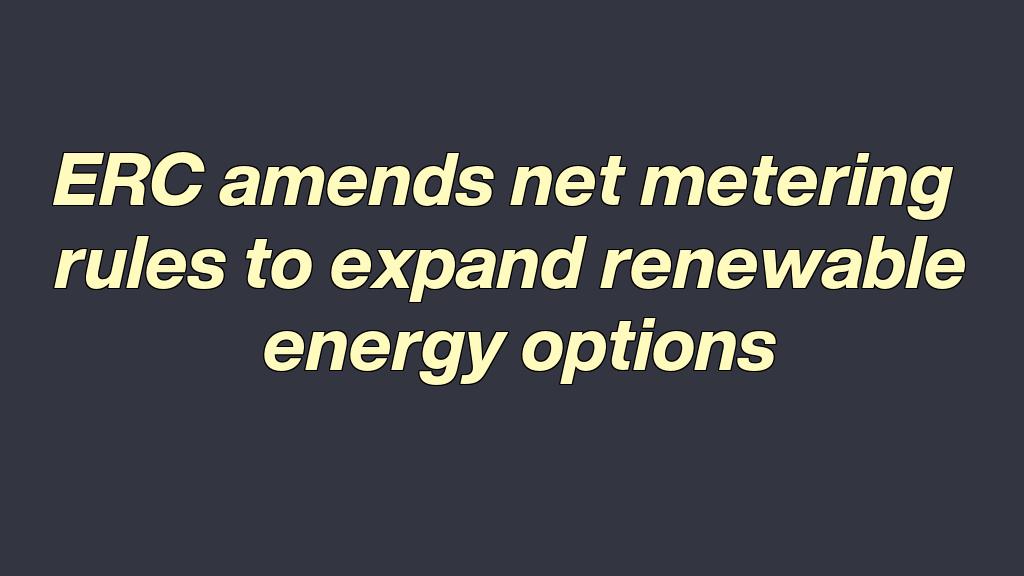MANILA, Philippines — The Energy Regulatory Commission (ERC) announced that it has issued the 2025 Amended Rules Enabling the Net-Metering Program for Renewable Energy.
The regulator said this development aimed to streamline the implementation of the net-metering program and make renewable energy (RE) adoption more accessible to qualified end-users.
Following a series of public consultations and careful review of stakeholders’ inputs, the ERC issued Resolution 15, Series of 2025, introducing key amendments aimed at strengthening consumer protection and simplifying processes for availing of the program.
As per the ERC, one of the key amendments permits the banking and rollover of net-metering credits toward a qualified end-user's electricity usage across current and future billing periods.
It added that in the event of a property ownership change, the credits may be transferred to the new owner, subject to conditions such as a conforme letter from the original owner., This news data comes from:http://rf.771bg.com

Net-metering allows customers of distribution utilities to install an on-site Renewable Energy (RE) facility not exceeding 100 kilowatts (kW) in capacity so they can generate electricity for their own use.
In turn, any electricity generated that is not consumed by the customer is automatically exported to the distribution utility's’s distribution system.
ERC amends net-metering rules to expand renewable energy options
- In Taiwan, competing narratives over the meaning of China's massive military show
- China is showing off its weaponry in a tightly controlled military parade
- China to bolster non-Western alliances at summit, parade
- ERC amends net-metering rules to expand renewable energy options
- OVP ready to submit to lifestyle check if ordered, no word from Sara
- Denmark summons US envoy over 'attempts to influence' Greenland
- Trump health misinformation swirls despite denial
- Trump moves to end US tariff exemption for small packages
- New mining law to balance profit, ecology
- Putin facing mounting pressure from the West